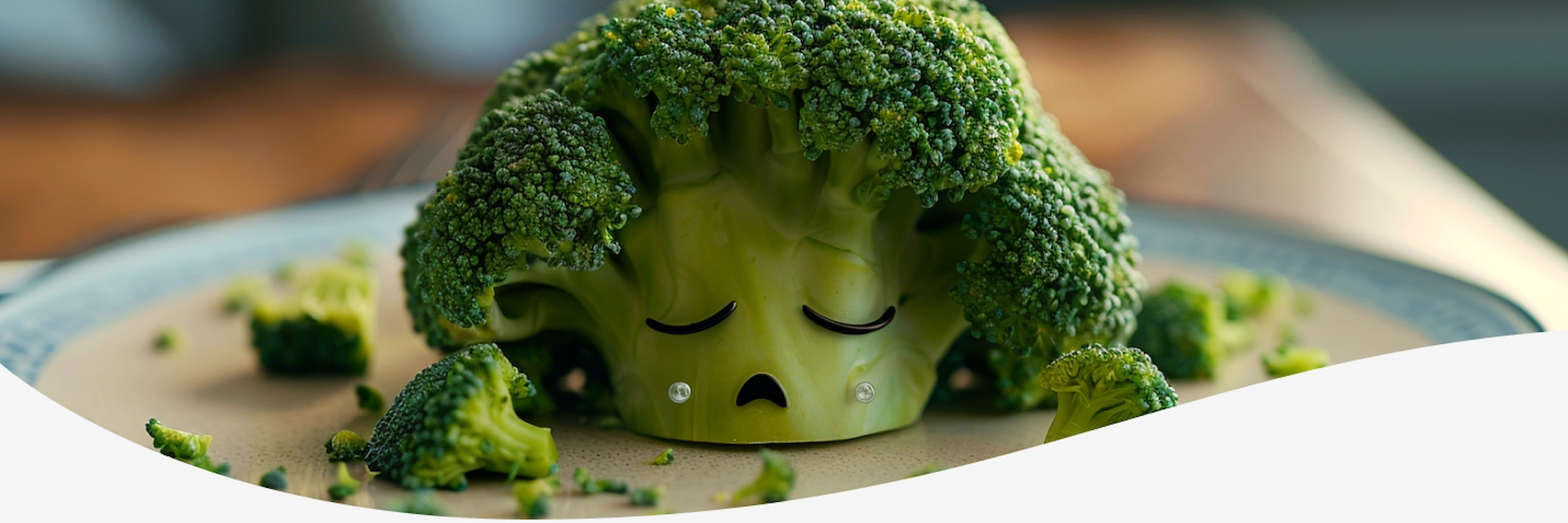
A guide to use fibers: when fibers are your friends and when not
"Fiber: The unsung hero of your digestive saga, until it starts to play the villain." Fiber is a cornerstone of a healthy diet, praised for keeping our digestive system running smoothly. This article will unravel the signs that you may be overdoing it with fiber, along with expert insights on finding the perfect balance to keep your digestive narrative on track. Whether you're bloated, gassy, or just not feeling right, understanding the role of fiber can help you turn the page to a happier, healthier gut.
The Importance of Fiber in the Diet
Fiber is crucial for digestive health and overall well-being. It acts like a natural broom in the body, aiding in waste elimination and maintaining regularity.4
Benefits for Digestive Regularity and Overall Health:
fiber serves as the body's natural broom, sweeping through the digestive tract and aiding in the elimination of waste. It is a vital part of a well-rounded diet, contributing to digestive regularity and promoting a feeling of fullness, which can aid in weight management. Additionally, high-fiber diets have been linked to a reduced risk of developing chronic conditions such as heart disease, diabetes, and certain types of cancer. The benefits of fiber extend beyond the digestive system, as it is also known to play a role in controlling blood sugar levels and improving cholesterol.
Recommended Daily Fiber Intake for Adults:
despite the known health benefits, many adults do not meet the recommended daily intake of fiber, which is around 30 grams per day based on research from the American Heart Association3. Often, the standard American diet, rich in processed foods, falls short in providing adequate fiber. This discrepancy between recommended and actual fiber intake can lead to various health issues, including digestive discomfort and irregularity.3
Sources of Dietary Fiber:
Soluble vs. Insoluble: fiber is categorized into two types: soluble and insoluble. Soluble fiber, which dissolves in water, can help regulate blood sugar and lower cholesterol. It is found in foods like oats, legumes, and some fruits. Insoluble fiber, which does not dissolve in water, aids in adding bulk to the stool and is found in whole grains and many vegetables. A balanced diet should include a mix of both types of fiber to reap the full spectrum of health benefits4.

Which Dulcolax® is right for you?
Answer few questions about your poop routine and we'll suggest the right product for you.
When to use fibers?
Finding the right balance for optimal digestive health involves strategic planning and mindful choices in your daily diet. Fiber intake plays a crucial role in maintaining digestive regularity and overall well-being4.
- Starting your day with a fiber-rich breakfast sets a positive tone, as it kickstarts your metabolism and provides sustained energy. Opt for whole grain cereals, oatmeal, or smoothies with added fruits and vegetables to fuel your body with essential nutrients and fiber3,4.
- Throughout the day, aim to include fiber-rich snacks, such as raw vegetables with hummus or nuts and seeds, to maintain satiety and prevent overeating during main meals. Incorporating fiber into your main meals, such as adding beans, lentils, or quinoa to salads, soups, or stir-fries, can further enhance digestive health. Snack on fiber-rich foods like nuts, seeds, and fresh fruits to keep your energy levels steady between meals3,4.
- Remember to stay hydrated by drinking plenty of water, as fiber works best when it absorbs fluids in the digestive tract4.
By finding the right balance and timing for fiber intake, you can support digestive health, prevent discomfort, and promote overall wellness. Experiment with different fiber sources and meal timings to discover what works best for your body and lifestyle, aiming for variety and moderation in your dietary choices. With consistent effort and attention to your fiber intake, you can achieve optimal digestive health and enjoy the benefits of a happy gut4.
Balancing Fiber Intake for Optimal Health
If you’re looking to get more fiber in your diet, here are some tips:
Adjusting Your Diet Gradually
Don’t rush into a high-fiber diet. Start slow and increase your fiber intake over a few weeks. This gradual approach allows the gut bacteria to adjust, minimizing the potential for gas and bloating4.
Stay hydrated and keep moving
Hydration plays a critical role when increasing fiber intake. Water helps fiber pass through the digestive system with ease, preventing constipation4. Furthermore, regular physical activity can help maintain regular bowel movements by stimulating the intestinal muscles4.
Get some advice
Everyone’s different, so what works for one person might not work for you. It’s a good idea to talk to a professional to get advice that’s tailored to your needs. They can help you figure out the best way to increase your fiber intake 4.
Incorrect Fiber intake:
Fiber is renowned for its long-term benefits in promoting a healthy gut. It plays a crucial role in regulating digestion, maintaining bowel regularity, and supporting overall digestive health. However, when faced with constipation, relying solely on fiber for a short-term solution may not yield the desired results. In such cases, increasing fiber intake too much or significantly can exacerbate discomfort and worsen symptoms1.
Instead, a more balanced approach involving hydration, gentle physical activity, and gradual fiber introduction is advisable. While fiber remains a cornerstone of digestive wellness in the long run, it's essential to approach its consumption mindfully, especially during bouts of constipation, to ensure effective relief and sustained gastrointestinal health4.
Finding the Right Balance: Fiber and Constipation Relief
Fiber's impact on constipation can vary depending on type and quantity. Tailoring fiber intake to individual needs, considering factors like age, gender, and activity level, is essential. This personalized approach helps avoid negative effects of excessive fiber1,4. Safely increasing fiber intake, accompanied by increased fluid consumption, can alleviate constipation without causing adverse effects4.
Dulcolax
Food rich in fiber helps prevent constipation, but once you are constipated you may want to consider trying a laxative. Dulcolax has a range of products that provide effective constipation relief.
Our Dulcolax tablets reactivate your natural gut rhythm when taken at night, providing predictable and comfortable constipation Relief. If you prefer a great tasting product, why not try Dulcolax Soft Chews, they work naturally with the water in your body for Fast and Gentle constipation relief in as little as 30 minutes*.
*Works in 30 minutes to 6 hours when used as directed.
Disclaimer:
Partly generated by Gen AI
Sources
- Ho KS, Tan CYM, Mohd Daud MA, Seow-Choen F. Stopping or reducing dietary fiber intake reduces constipation and its associated symptoms. World J Gastroenterol. 2012;18(33):4593-4596. doi:10.3748/wjg.v18.i33.4593
- National Institute of Diabetes and Digestive and Kidney Diseases. Eating, Diet, & Nutrition for Constipation. U.S. Department of Health and Human Services. Published 2024. Accessed April 17, 2024. https://www.niddk.nih.gov/health-information/digestive-diseases/constipation/eating-diet-nutrition
- American Heart Association. Whole Grains, Refined Grains, and Dietary Fiber. Last reviewed November 2021. Accessed April 17, 2024. https://www.heart.org/en/healthy-living/healthy-eating/eat-smart/nutrition-basics/whole-grains-refined-grains-and-dietary-fiber
- Mayo Clinic. Dietary fiber: Essential for a healthy diet. Published November 4, 2022. Accessed April 17, 2024. https://www.mayoclinic.org/healthy-lifestyle/nutrition-and-healthy-eating/in-depth/fiber/art-20043983








.webp)

.webp)
.webp)





.webp)